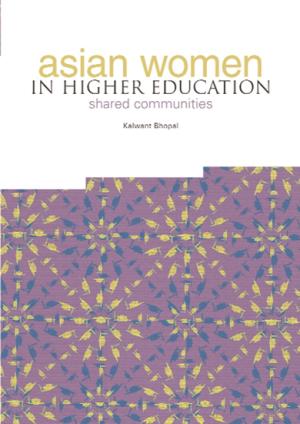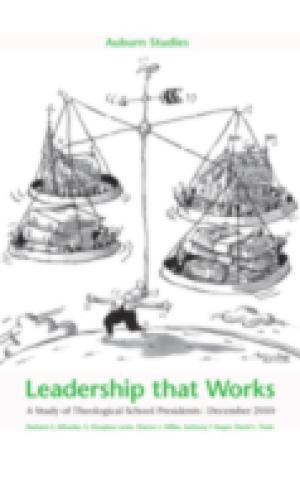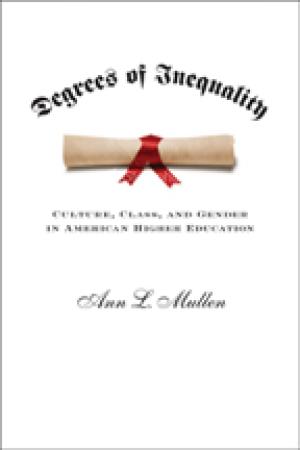Resources
One page Teaching Tactic: establishing a predictable structure with discussion questions at the start of each class.
One page Teaching Tactic: students learn to create models in order to increase their grasp of nuanced theological arguments.
One page Teaching Tactic: a method for improving students' sermons.
This essay presents educational principles of Mahatma Gandhi, specifically principles of character education, as a model for strengthening non-violence in students. Its major concern is to show that Gandhi's ideal of non-violent character education is important for university teaching in disciplines including religious studies, and that Gandhi offers methods for fostering non-violent character, namely the teaching of world religions, service learning, and setting an example. The effectiveness of Gandhi's views, moreover, finds some support in contemporary teaching practices, including my own experiences in the classroom.
One factor contributing to success in online education is the creation of a safe and vibrant virtual community and sustained, lively engagement with that community of learners. In order to create and engage such a community instructors must pay special attention to the relationship between technology and pedagogy, specifically in terms of issues such as course design, social presence, specially tailored assignments, learner expectations, and objectives, and facilitation of sustained engagement with the course material, fellow learners, and the instructor. Several strategies for accomplishing this goal are presented here based on the author's experiences teaching second-career students in hybrid introductory theology courses at a mainline denominational seminary.

More Asian women are entering higher education in the UK than ever before, and the number looks likely to rise. Their engagement with higher education reflects widespread changes in the attitudes and cultural expectations of their various communities, as awareness grows of the greater long-term value associated with continuing in education. Today they face different challenges and share different ambitions from those of their mothers and grandmothers. This book examines the experiences of young Asian women in higher education and the difficulties they face because they have no shared background of engagement with the British university system. It considers what motivates them to succeed and describes their strategies for building support networks that help them succeed with the university setting and actively shape their lives. Taking a theoretical and empirical perspective Kalwant Bhopal examines the diversity of Asian women's experiences in higher education and provides original and valuable insights into their experience. She explores the friendship and support networks that women turn to whilst at university as well as familial support. Especially striking are her findings about the effect of higher education traditional practices such as arranged marriages and dowries, and about the empowerment generated by changing the economic status of women within British Asian society. Asian Women in Higher Education: shared communities offers a new and original perspective on the educational experiences of Asian women at university. It will be invaluable to teachers, postgraduate and undergraduate students and academics interested in the study of gender, ethnicity, identity and higher education. (From the Publisher)


Degrees of Inequality reveals the powerful patterns of social inequality in American higher education by analyzing how the social background of students shapes nearly every facet of the college experience. Even as the most prestigious institutions claim to open their doors to students from diverse backgrounds, class disparities remain. Just two miles apart stand two institutions that represent the stark class contrast in American higher education. Yale, an elite Ivy League university, boasts accomplished alumni, including national and world leaders in business and politics. Southern Connecticut State University graduates mostly commuter students seeking credential degrees in fields with good job prospects. Ann L. Mullen interviewed students from both universities and found that their college choices and experiences were strongly linked to social background and gender. Yale students, most having generations of family members with college degrees, are encouraged to approach their college years as an opportunity for intellectual and personal enrichment. Southern students, however, perceive a college degree as a path to a better career, and many work full— or part—time jobs to help fund their education. Moving interviews with 100 students at the two institutions highlight how American higher education reinforces the same inequities it has been aiming to transcend. (From the Publisher)

This volume provides new perspectives into the challenges of citizenship education in the age of globalization and in the context of multicultural and conflict-ridden societies. It calls on us to rethink the accepted liberal and national discourses that have long dominated the conceptualization and practice of citizenship and citizenship education in light of social conflict, globalization, terrorism, and the spread of an extreme form of capitalism. The contributors of the volume identify the main challenges to the role of citizenship education in the context of globalization, conflicts and the changes to the institution of citizenship they entail and critically examine the ways in which schools and education systems currently address – and may be able to improve – the role of citizenship education in conflict-ridden and multicultural contexts. (From the Publisher)
Wabash Center Staff Contact
Sarah Farmer, Ph.D
Associate Director
Wabash Center
farmers@wabash.edu